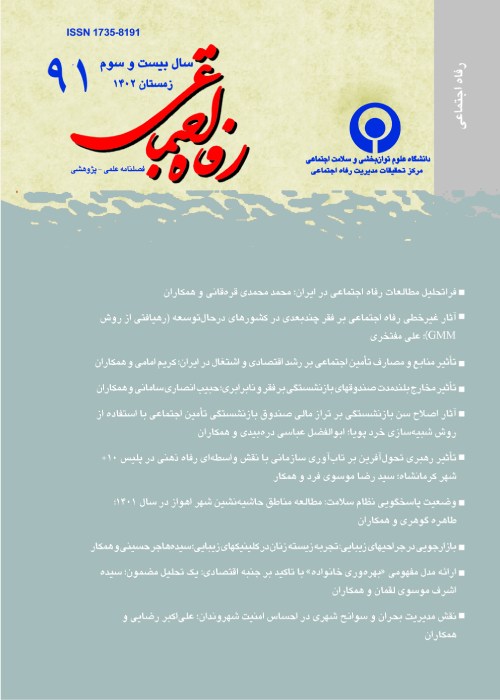Barriers to Participation in Urban Plans from the Perspective of Citizens' Behavioral Patterns in Qazvin's Bolaghi Neighborhood
urban planning expected achievements in Iran, despite its long history, have not been satisfactory & they have not been able to materialize the welfare promised. even the most recent urban planning methods, often based on collaborative patterns, have not responded to the needs of citizens. Failure to implement these programs is affected by several factors. Lack of participation due to behavioral patterns of citizens is considered as an important obstacle. Thus the purpose of the present paper which is based upon a field study, is to identify socio-behavioral barriers that have caused urban residents to be reluctant to participate in collaborative approaches; the case study is a historical neighborhood in Qazvin city named Bolaghi.
The paradigm of the study is interpretational; this kind of epistemology requires "qualitative" techniques in order to measure effectively those barriers mentioned above. Therefore, the technique used to collect data through "in-depth interviews" with the residents of the Bolaghi neighborhood.
The study led to the production of a list of about 70 types of barriers to participation in 14 categories, originating from the behavioral patterns of citizens with in a largely cultural-historical context. Also, in a comparative study, it was found that the use of an asset based community development (ABCD) model could eliminate about 35 to 40 percent of citizens' behavioral barriers and to elevate residents’ participation.
The review and alignment of the participatory planning process is essential by improving the understanding of the existing situation in the urban community of Iran and considering the behavior patterns of the citizens. Behaviors that are mostly reactive and in a complex structure combined with governance policies. Therefore, it is important to formulate appropriate planning patterns. As experience has shown, the use of participatory models solely based upon Western experiences will not be fruitful taking Iranian context into consideration.
- حق عضویت دریافتی صرف حمایت از نشریات عضو و نگهداری، تکمیل و توسعه مگیران میشود.
- پرداخت حق اشتراک و دانلود مقالات اجازه بازنشر آن در سایر رسانههای چاپی و دیجیتال را به کاربر نمیدهد.


